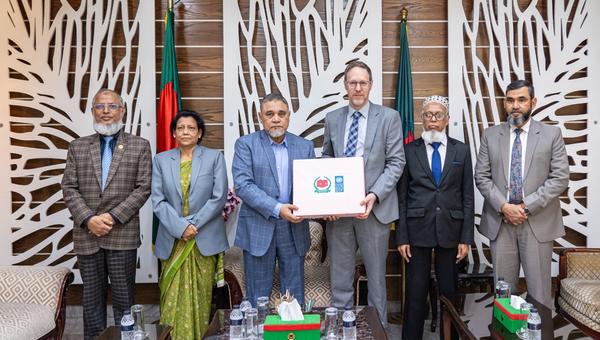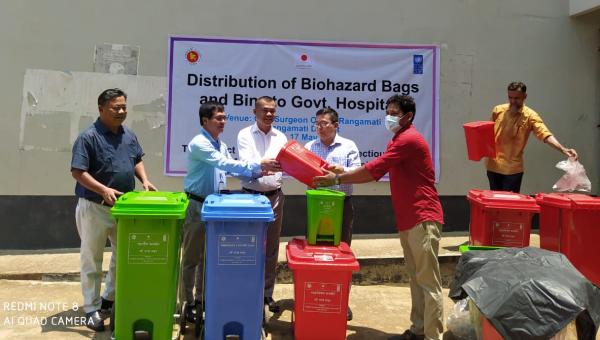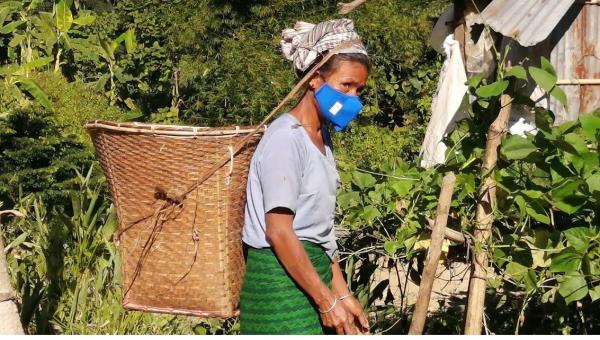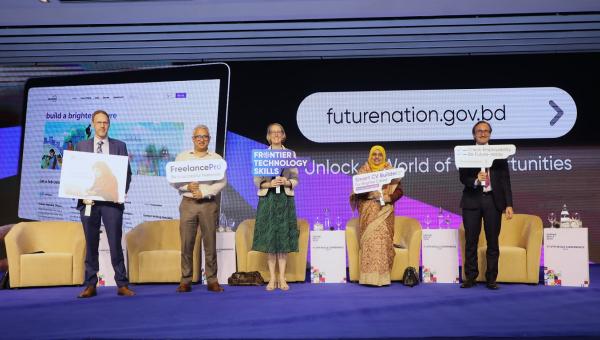Livelihoods Improvement of Urban Poor Communities Project
Background
Rapid urbanisation is a reality for Bangladesh and 50% of the total population is expected to live in urban areas by 2050. Although urbanisation has proven to be a strong catalyst for national economic growth and reduction of poverty rates, the prevalence of urban poverty in Bangladesh remains very high. However, as climate change effects increase both in frequency and intensity, climate-induced displacements to urban centres are on the rise, and there has been spatial relocation of poverty from rural climate-hotspots to urban areas. As a result, poor people are disproportionately and continuously exposed to climate vulnerabilities as they lack financial and technical capacities to implement adaptation measures. Therefore, unplanned and unmanaged urbanisation has emerged as a principal threat to Bangladesh’s future development progress.
In an effort to strengthen urban resilience and reduce urban poverty through locally-led adaptations, United Nations Development Programme, in partnership with the UK’s Foreign, Commonwealth & Development Office (FCDO) and the Government of Bangladesh launched a five-year national programme (2018-2023) known as the Livelihoods Improvement of the Urban Poor Communities (LIUPC) Project. It is the largest partnership globally between the UK and UNDP.
The flagship programme is improving the livelihoods and living conditions of over 4 million climate-vulnerable people in urban areas through inclusive and climate-smart strategies across 19 cities in Bangladesh. The programme supports; community-driven adaptation initiatives including the development of small-scale climate-resilient infrastructures; adaptive livelihoods initiatives; access to finance to strengthen resilience of homes; development of larger social housing solutions; and crucially, the holistic empowerment of community women, enabling them to access local decision makers to respond to community demands and achieve governance-based solutions.
Area of Work
- Climate resilient housing for low-income urban poor.
- Strengthen community organisations.
- Skills & employment generation for women and girls, improve nutrition status, and prevent Violence against Women and Girls and Early Forced Marriage.
- Improve resilient infrastructure.
- Strengthen pro-poor urban management, policy and planning.
Significant Achievements
- 3.8 million vulnerable urban poor community members reached across 759,970 households, and mobilised into effective community social structures led by empowered local women leaders. Development of local action plans to deliver sustainable solutions to their communities.
- Over 1.8 million urban poor people benefit from strengthened resilience against climate-induced hazards and associated vulnerabilities and are less susceptible to climate-induced shocks and stresses including loss and damages. Community-driven infrastructure developments include evacuation bridges, embankment walls, underground drainage networks, access to saline-free drinking water, adaptive WASH facilities, climate-smart home improvements, and affordable housing solutions.
- Urban poor women experiencing vast improvements in their socioeconomic status through wide-ranging initiatives including adaptive skills development & employment opportunities, nutritional support for pregnant & lactating mothers, educational support for young girls, and safeguarding action around violence against women & girls, and early & forced marriage.
- 55,000+ urban poor received skills & business development training, and 40,000 women were provided with seed capital to set up small businesses for greater financial security.
- USD 6.9 million generated through community group savings initiative, helping reduce shocks and stress in sustaining basic household expenditure during climate-induced hazards, public health crisis, etc.
- 609 Low-Cost Social Housing units being developed through public financing as a permanent solution for the most vulnerable in Gopalganj, Kushtia, Noakhali and Chandpur.
- Plastic waste management and circular economy models piloted and are ready for scale-up.
Objectives
The project aims to contribute to balanced, sustainable growth by reducing urban poverty in Bangladesh and achieve the Sustainable Development Goals by 2030 that call for ‘leaving no one behind’.
The major objectives of the project are to facilitate climate resilient housing and basic services for the low-income households; build community organisation, skills and enterprise development for women and girls; enhance climate adaptive capacity of the low-income community through resilient infrastructure and strengthening municipal capacity for improved urban management, policy and planning.

 Locations
Locations





